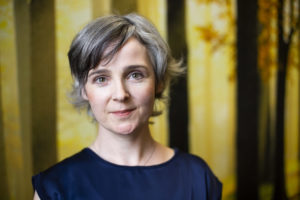Farmers are facing challenges in responding to climate change, and there are increasing pressures to produce quality food sustainably.
Changing weather patterns are having an impact, as well as coping with the changes driven by climate policy in Ireland and at EU level and the need to protect nature and water quality.
With the importance of farming to the economy and to climate change, it is important, now, more than ever, to hear directly from farmers.
Agriculture and climate
The National Economic and Social Council (NESC), the body that advises the Taoiseach on key issues, is preparing a comprehensive assessment of agriculture and climate.
The report, which a high-level stakeholder group, including farming representatives are supporting, may be published in early 2023.
As part of the project, NESC has looked at the broader policy context, including the economic, social and environmental factors.
Of particular interest is the low carbon transition for agriculture and the challenges and opportunities this presents within the wider context of land use, forestry and rural development.
These are critical in considering what is a just and inclusive transition.
Farmer input
Niamh Garvey, project lead at NESC, is motivated to “hear farmers tell it in their own words”.
“The project team has gathered material, reports, data on the issues and some of the potential ways forward. As well as looking at fair and just solutions, a key part of a just transition approach is getting people involved in the process.”
“We feel that real-world experience has to inform policy. That is why we are placing importance on hearing directly from farmers and rural community voices on transition options, barriers, and enablers.”
“We are determined to tell the story of how farmers want to be involved in the response and what measures and assistance would help them make the most impact.”
“What for them is a just transition? We have asked specialist facilitators at Second Nature to organise six in-person small discussion workshops to hear directly from different farmers.”
They want to explore:
- Different farm types and regions;
- Barriers they are facing in reducing emissions;
- Generating income;
- Protecting the environment (climate, biodiversity and water quality);
- Thoughts on some of the potential measures that might help in practice.
Farmer workshops
Sessions are taking place in different parts of the country, where farmers can have their say:
- Tubbercurry, Co Sligo, October 12th, 2022;
- Tullamore, Co Offaly, October 13th, 2022;
- Mitchelstown, Co Cork, October 14th, 2022.
Each workshop lasts around two hours.
Spaces are limited, but farmers are invited to sign up by visiting this webpage or by emailing [email protected] or calling – 01 442 9670.





